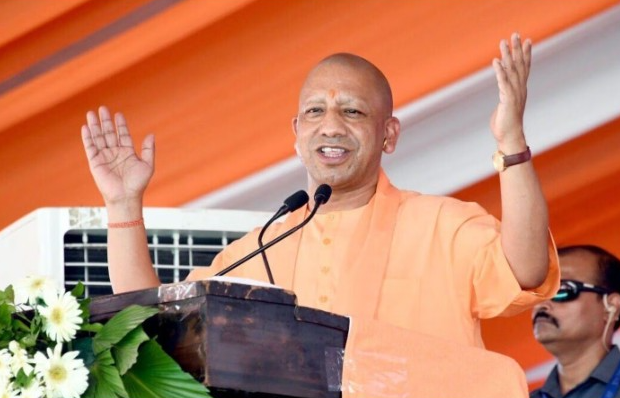NB Explains | Why did UP govt ban 'Halal-certified' products with immediate effect?
20 Nov 2023 11:26:23
Hours after NewsBharati reported that the Uttar Pradesh government is planning to ban Halal-certified products in the state, the administration issued orders to this effect.
The state’s Food Safety and Drug Administration Commissioner issued an order dated 18th November, notification number – FSDA Food/2023/6145 to put an immediate ban on the production, storage, distribution, and sale of ‘Halal certified’ food items citing public health. The “Halal-certified items’ banned include edible items, medicines, and cosmetic items.

Why?
The UP govt notification says that the Halal certification is a parallel system as the country has the Food Safety and Standards Authority of India to determine the quality of foods and that it violates the provisions of the Food Safety and Standards Act, 2006, under which FSSAI was formed. It stated that the right to decide the quality of food items lies only with the authorities mentioned under the Food Safety and Standards Act, 2006.
"Thus, Halal certification of food products is a parallel system which creates confusion regarding the quality of food items and is completely against the basic intention of the said Act and is not tenable under Section 89 of the said Act," the order states.
The government also warned of strict actions against those who violate the ban.However, goods with Halal certification produced for export are exempted from the ban.
FIR registered
The order comes after the Uttar Pradesh police, earlier today, registered an FIR against several companies selling “Halal certified” products using forged documents. The FIR was lodged at Lucknow’s Hazratganj Kotwali against companies named Halala India Private Limited Chennai, Jamiat Ulema Hind Halal Trust Delhi, Halal Council of India Mumbai and Jamiat Ulema in Mumbai.
Also Read: Ban of Halal certification in UP? Yogi govt mulls ban on illegal Halal goods after case lodged in Lucknow
These companies were selling products such as bathing soaps, spices, snacks, dairy, and garments with fake Halal certifications. Lucknow Police has registered against the accused under sections 120b/153a/298, 384, 420, 467, 468, 471, and 505 of IPC. The police are investigating the matter.
What is Halal Certification?
A Halal Certification is a guarantee that a product - food or otherwise - has been made in keeping with the Islamic law and is unadulterated. In simple words, meat that has been obtained via an Islamic method is referred to as halal meat
Halal and Haram also refer to the way an animal is slaughtered. Islamic law states that an animal be slaughtered in the most humane way. When slaughtering, halal guidelines recommend that a sharp knife be used to make an incision at the front of the throat, slicing the oesophagus, and the jugular veins but not the spinal cord unlike the jhatka method of slaughtering an animal is beheaded.
In India, the certification is provided by third party bodies such as the Jamiat-Ulama-E-Maharashtra and the Jamiat-Ulama-i-Hind Halal Trust, quite unlike the Arab countries where a magistrate grants the certification.
In April last year, a petition was filed in the Supreme Court demanding a complete ban on halal products and halal certifications, arguing that what started as a food certification had expanded to include even cosmetics and daily products such as soaps and shampoos.
